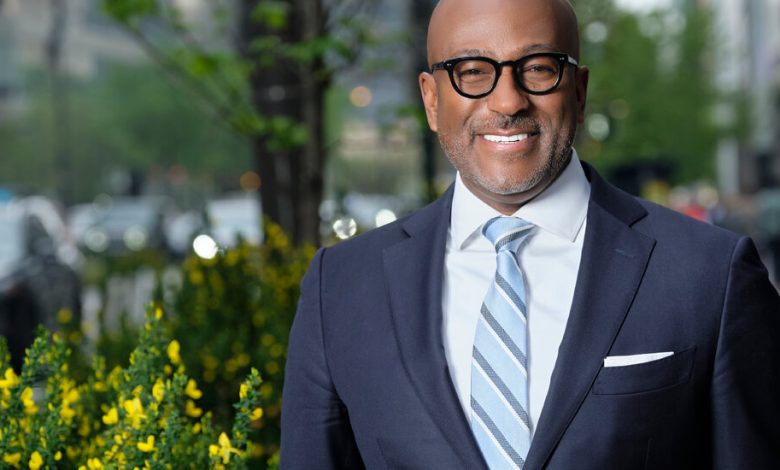A Storied Harlem Church Has a New Leader. Its Members Have Questions.

Ever since Adam Clayton Powell Jr.’s reign, beginning in the late 1930s, Abyssinian Baptist has been one of the most influential Black churchs in the country, a force in the political life of New York and an economic and social engine in Harlem, where it has stood for a century. When the Rev. Calvin O. Butts III, who presided over the church for three decades, died two years ago at the age of 73, his legacy was felt both at the level of spiritual inspiration and material advantage. As chairman of the Abyssinian Development Corporation, he delivered roughly $1 billion to residential and commercial projects in Harlem, brought a new high school to the neighborhood and worked to blunt the sharpest edges of gentrification.
As former Mayor Michael Bloomberg put it when the pastor died, “Reverend Butts took the idea of building the kingdom of God literally.”
Perhaps because of this outsize imprint, the process of naming his successor has been divisive, raising questions among some congregants around transparency and bias and whether the church, with a congregation of a few thousand, can sustain its prominence, or even stability. Over the past two years, the search for a new leader has been consuming. On Sunday, it resulted in the controversial election of a Philadelphia pastor named Kevin R. Johnson, who is described on the website for his current congregation — Dare to Imagine Inc. — less in the language of liturgy than in the parlance of LinkedIn: “a proven executive in transforming organizations into innovative, high-performing, fiscally sound and pioneering institutions.”
In a statement issued right after the election, the Rev. Dr. C. Vernon Mason, a longtime Abyssinian deacon and a well-known former civil rights lawyer, said that the past two years had sent him on a “heartbreaking journey.” According to institutional rules, he explained, a viable candidate needed “a proven record of at least 12 to 15-plus years of successful leadership over a large Black Baptist church.” He went on: “The relentless pursuit to advance a particular candidate who did not meet the most basic requirement defies me.”
The first public sign of tension around the hiring process came six months ago, when one jettisoned candidate, the Rev. Dr. Eboni Marshall Turman, an associate professor at the Yale Divinity School, filed a civil rights suit against the church, claiming that she did not advance to a final round of interviews because she was a woman. She had also never held the chief role in a major Baptist church. But having served at Abyssinian for more than 10 years — she was the youngest woman ever to be named an assistant minister — Dr. Turman, the suit claims, had been told by Mr. Butts that she was the “smartest minister” he ever had but that she had no hope of becoming senior pastor because of her sex. In a statement made when the suit was filed, the church denied the discrimination charge, maintaining that it put “faith, fairness, integrity and inclusivity at the center” of everything it did.